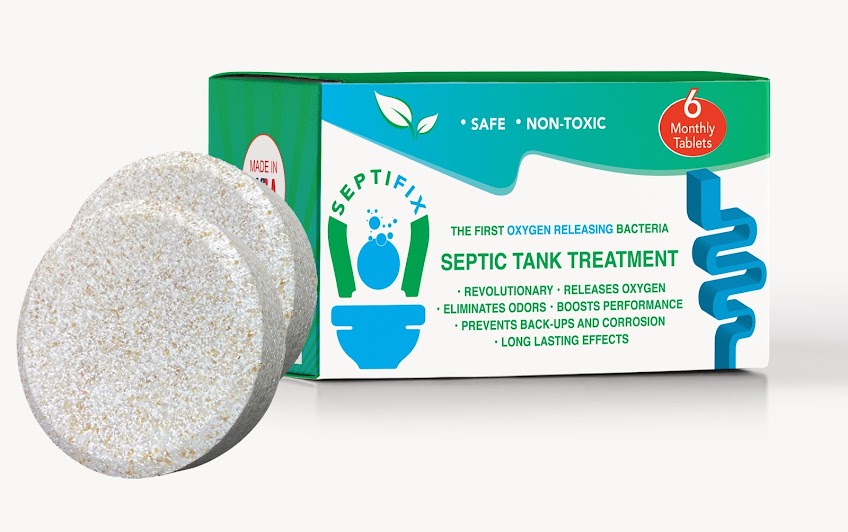Are Baking Soda and Vinegar Safe For Septic Tanks?
One of the questions people have around their septic systems is around what kind products are safe to use, today we will be answering that question for Vinegar and Baking soda.
Vinegar and baking soda are often used as alternatives to synthetic chemicals and cleaning products. Commercially-marketed cleaning products may, at times, contain toxic chemicals or irritants that can pose health risks if there is contact with the eyes, skin, or when inhaled/ingested. These synthetic chemicals can also be harsh on your septic system as they can kill off the good bacteria that are essential to the proper functioning of your septic tank system. Good bacteria are necessary for breaking down the waste products and turning these into
Are baking soda and vinegar safe for septic tanks? You can be certain that vinegar and baking soda are safe, inexpensive, and effective agents in cleaning your toilet bowls and drains. Baking soda and vinegar are safe biodegradable cleaners that are definitely better than the non-biodegradable synthetic cleaning products which, with excessive use, can be harsh on your septic system. Using more natural and common household staples like baking soda and vinegar instead of chemical cleaners such as bleach will keep the important bacteria in your septic system from being killed off.
Whatever you pour down any drain affects how you keep your septic system in good working order. Harsh cleaning chemicals like bleach are typically synthetic and can actually eat away at the good bacteria in your drain and entire septic tank system. The absence of this good bacteria in your septic system will likely cause clogs, back-ups and foul odor that will wear away at your septic tank and, eventually, lead to a serious septic system problems requiring expensive repairs. Instead, use baking soda for cleaning your bathroom. Vinegar is a typical additive to baking soda mixtures that clean bathroom and kitchen sinks and surfaces.
Baking Soda and Vinegar: Cleaning Tips
Baking soda is great to use for unclogging a drain. If you have a clogged sink or drain, you can first try using baking soda. The basic practice is to mix baking soda with one cup of hot water, and vinegar. Pour this mixture down the drain, wait ten minutes for the mixture to settle, and then use your plunger.
As a toilet bowl cleaner, you will need baking soda and liquid castile soap. Sprinkle baking soda to the insides of the toilet bowl. Add about two to three drops of liquid soap. Scrub the insides of the bowl with a toilet brush and finish the outside with a sponge or a damp cloth.
If you wish to clean your drain, you will need ½ cup baking soda, ½ cup white vinegar, and a kettle of freshly boiled water. First, pour baking soda down the drain and then add the vinegar. Let the mixture fizz for a few minutes, then pour in the boiling water. Repeat as needed.
Cleaning Products that are Safe to Use with Septic Systems
Septic systems can handle most chemical cleaning products but in moderation. Using too many synthetic chemicals will alter the bacterial balance in your septic tank. This causes problems for the entire septic system like clogging, polluting the groundwater, and leach field malfunctions. Trouble arises when excessive amounts of synthetic chemicals are introduced into the system. It is recommended that you use septic-safe products (as indicated on the label). Many common household products bear these septic-safe labels. Biodegradable or environmentally-friendly products are likewise perfectly safe for use in septic systems.
Household Bleach. Products containing bleach are generally safe for use with septic
All-Purpose Cleaners. Mild detergents, like laundry detergents or any other detergent cleaners that can be applied without needing to use gloves, are generally safe for use in septic systems. Low-sudsing, phosphate-free detergents are best. Natural detergents and other multi-purpose surface cleaners are also generally safe and will not damage your septic lines or the bacteria inside the septic tank. Look for cleaners that are non-toxic, biodegradable, and chlorine-free. Find septic friendly cleaners here.
Ammonia Cleaner. Pure ammonia and cleaning products containing ammonia are also considered safe for septic system use in small amounts. Ammonia does not kill the healthy bacteria in the septic system, nor will it leach into the groundwater. But, just like bleach, it should be used in moderation. Remember, though, to be careful not to mix chemicals like bleach with ammonia.
Water-Based Cleaners. Most water-based cleaners, like water-based carpet cleaners, tub, and toilet cleaners, and disinfectants are safe for septic use. Water-based cleaners do not contain harsh solvents that can inflict damage on septic systems. Water-based cleaners should always list water as the first ingredient on the label.
Septic-Safe Drain Cleaners. Only drain cleaners in liquid form are safe for septic systems. Solid or foaming drain cleaners have the potential to damage the septic system and should be avoided. Although, even liquid drain cleaners may cause septic tank damage if used too frequently. Use sparingly and avoid using these weekly or monthly.
Household Staples. To be on the safe side, you may prefer something a little more natural. Items you typically have around the house like baking soda and vinegar can actually double as cleaners that are safe for your septic system. They can be used to disinfect surfaces, deodorize, whiten, and soften. It works well in the laundry and for cleaning surfaces in the home. Use it to naturally clean your toilet, or use it to scour hard-to-clean surfaces or areas.
Household cleaners that are safe for septic systems and can make your life easier (and more affordable, too). Though, as with everything else, anything in excess can be harmful. Inadequate and excessive use of baking soda and vinegar may upset the necessary pH balance in your tank.
Simple and “green” Cleaning Alternatives to Borax
Just before the year 2000, borax was a common household item, considered to be a popular and effective cleaning agent. Borax disinfects, whitens, and fights common household problems like mold and mildew. It is also effective in killing ants. Several DIY cleaning mixtures include borax because it is an eco-friendlier option to petroleum-based ingredients found in conventional cleaning products. But the safety of borax, especially its salts and precursors, has come under review. Health screening assessments now recommend minimizing exposure to borax.
To disinfect, substitute borax by:
- Using food-grade hydrogen peroxide (3%) solution in a spray bottle. Spray on hard surfaces then wipe clean.
- Mixing water and white vinegar in equal parts. Put in a spray bottle. This mixture is effective for battling household bacteria like salmonella, E. coli, and other gram-negative bacteria.
- Adding essential oils that have antibacterial, antifungal, and grease-cutting properties. These include lemon, lime, orange, grapefruit, tea tree, lemongrass, thyme, lavender, rosemary, and eucalyptus. Add these to the mixtures described above.
- Rubbing half a lemon on surfaces like a dirty cutting board, then wipe clean. You can add salt for extra cleaning potency. Further, you can place the other half of the lemon in a bowl, microwave it for one minute, and then use it to rub on the inside of your microwave oven. Wipe clean after a few minutes. Lemon juice is a mild antibacterial acid that bleaches and disinfects.
How to Keep Your Septic System in Good Condition
Inspect your septic system once every year. Ideally, septic tanks should be pumped every three to five years. A regular inspection may reveal if you need to have it pumped more or less frequently. Usage conditions affect frequency. Regular pumping ensures that the solid wastes will not flow from the septic tank into the drain field.
Regularly pump out your septic tank. Do not wait for septic system problems before having it pumped. Routine pumping can prevent failures in your septic system.
Keep accurate septic system records. Have a diagram of your septic system’s location and keep a record of system maintenance. Keep this information in the house and readily available.
Conserve water. Mindful water consumption results to more manageable wastewater production. High volume of wastewater causes strain on your septic system. By reducing your water consumption, you prolong the life of your drainfield and diminish the likelihood of system failures.
Contract a certified septic technician for septic system issues. Cleaning, draining, and pumping your septic tank system are best conducted by certified septic system professionals. The job entails equipment, needs to be completed efficiently, and the consequences of potential mishaps are suitably handled by experts.
Make Sure to Use Septic Safe Toilet Paper, find our list of the best septic safe toilet paper on the market.
The septic tank system lies below a home or business facility and so is typically one of the “back-of-mind” elements of the property. Nonetheless, the importance of the septic tank system can never be overstated. In fact, it would be close to impossible to survive in any home or establishment without a fully-functioning septic system. That said, the septic tank system should always be kept in good running condition. Even when there is no significant issue, your septic tank system should be monitored, maintained, and serviced regularly by certified professionals. Prevention is always the best remedy.
[us_map]
https://www.amarillo.com/article/20110617/LIFESTYLE/306179848
https://www.hunker.com/13420766/the-best-products-to-use-for-cleaning-homes-with-septic-systems
https://www.flohawks.com/resources/septic-care-tips.asp











